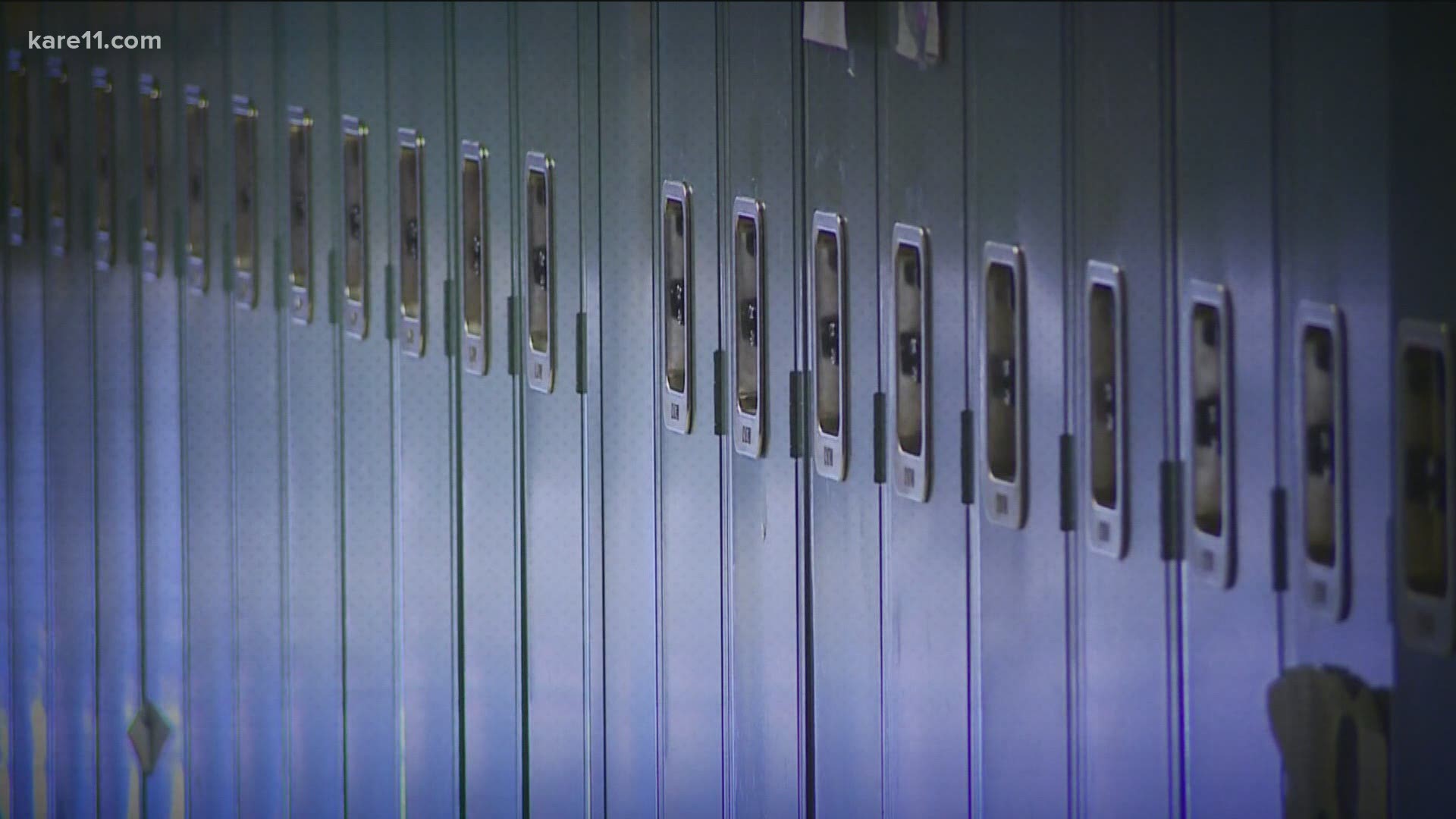MINNEAPOLIS — When Governor Walz announced a return to in-person learning for all Minnesota grade levels on Wednesday, it wasn't just welcome news for many students and their parents.
"I think that there are so many good things about the possibility of kids getting back to school," said Dr. Sarah Jerstad, a psychologist at Children's Minnesota. "They can get kind of the interaction and the support that they need."
For months, Dr. Jerstad says she's heard stories from teenagers and other young people who are struggling with mental health issues.
Dr. Jerstad: "We have a long waitlist here for therapy. We've seen many more students and families seek out help."
Kent Erdahl: "That's got to be a bit of a hopeless feeling knowing that demand is just so much greater than what you can provide right now."
Dr. Jerstad: "It's really hard. We want to do our best to help every patient and family who calls."
She says many of the calls are regarding the disappearance of classroom learning, and the impact on kids with ADHD and other learning difficulties.
"This has been such a heavy lift to try to translate in person learning to online learning," she said. "To stay focused, to stay organized, that really impacts their self confidence."
Learning difficulties are far from the biggest concern. Dr. Jerstad says she's heard from many more students who are struggling more broadly with unexpected and anxious feelings associated with missed social interaction.
During the news conference announcing the return to school on Wednesday, Lane Versteeg, an Owatonna senior, described those struggles.
"Nothing can replace the memories made with friends during high school," Versteeg said. "I was longing for just one more bus ride with my teammates, just one more rush of anticipation before rushing on to a concert stage, and hoping, not just for a senior prom, but a first prom."
Dr. Jerstad says those events are all really important to development and mental health. She says the smallest interactions sometimes have the biggest impact.
"I think of my kids who struggle with depression," Dr. Jerstad said. "School was a primary support system for them. A lot of these kids would pop in and talk to a favorite teacher or counselor, just seeing friends around the hallway, and get that kind of social support."
It's why, even during a news conference, you could feel how important a return to in-person school could be.
"I am reminded of the excitement I was experiencing 12 months ago," Versteeg said. "I am eager for the opportunity to share the walls of my high school with my classmates one last time."
But as students prepare to return, Dr. Jerstad says it's also important for everyone to remember, that it won't be a celebration for all. For many, the challenges will continue.
"This isn't going to solve all our problems, so we want to keep our eye out for those kids who are still struggling with mental health issues," she said. "Even though they are back at school, it's not going to change everything. Some kids have had parents lose jobs, some kids have had to leave their homes and go to other places and some kids have not been able to get great access to their online schooling. Those kids we really need to keep an eye out for."
Dr. Jerstad says it's important for parents to understand how a possible return to in-person learning could also lead to changes in schedules, routines and teachers which might impact their child's learning. She says look all of those changes should be carefully explored and considered ahead of time.

